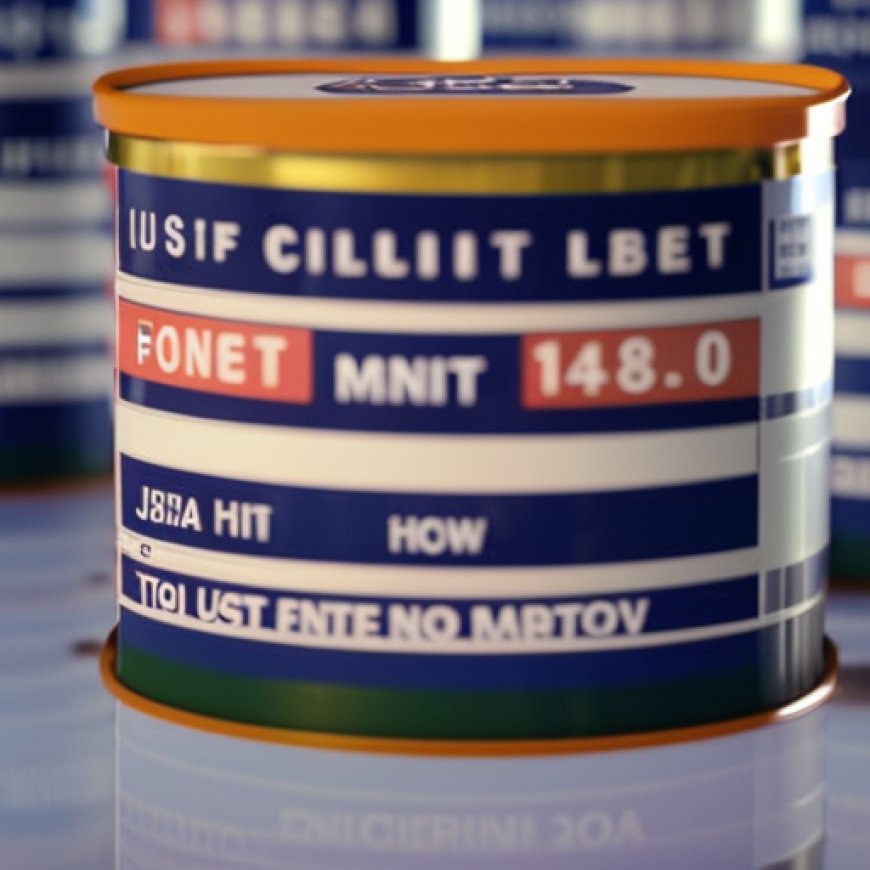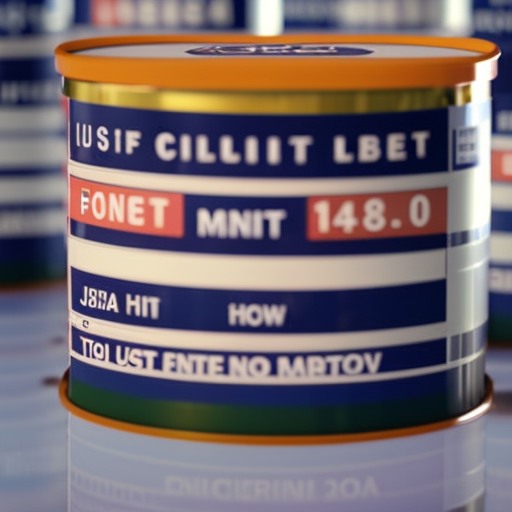UK post-Brexit packages to boost fishing industry while securing sustainable fish stocks
UK post-Brexit packages to boost fishing industry while securing ... Food Ingredients First


Sustainable Fishing Measures Implemented by UK Government Post-Brexit
18 Jul 2023 — The UK government claims it’s boosting sustainable fishing by exercising post-Brexit powers that allows it to control fish catches and stocks in British waters now it’s no longer part of the EU. Ministers have backed a new package of measures to create a resilient fishing industry while securing sustainable fish stocks.
Introduction
Marking a deviation from EU’s Common Fisheries Policy (CFP), the UK government has introduced a world-class system of fisheries management that uses science and fishermen’s expertise to maintain healthy fish commodities. The initiatives will aid the fishing industry in delivering a thriving, sustainable fishing industry and healthy marine environment for future generations, ministers claim. The move builds on investment and rises in fisheries opportunities worth more than £200 million (US$261.8 million).
Sustainable Stock Management
With the seafood sector taking various measures to reduce the strain on fisheries, supporting the fishing sector in managing its stocks becomes pertinent. The UK’s six Fisheries Management Plans (FMPs) are the first of the 43 FMPs proposed in the UK’s Joint Fisheries Statement. They cover crab and lobster, whelk, king scallops, bass, channel non-quota demersal stocks and southern North Sea and Eastern channel mixed flat fish. The FMP represents an attempt to break away from the unsuccessful top-down impositions of the CFP and unite anglers, scientists and regulators in building something new and better, according to Mike Cohen, chief executive of the National Federation of Fishermen’s Organisations. “Measures to strengthen fishing businesses and enhance their sustainable growth will bring tangible benefits to the UK,” he says.
Remote Electronic Monitoring (REM)
The government is planning a consultation launching its strategy for REM in English waters, setting out the proposed approach and next steps. REM systems include cameras, gear sensors and GPS units that can gather data while fishing boats are at sea, including the amount, size and species of fish caught. The information generated will support the fishing industry in managing stocks sustainably and give fish buyers and retailers greater confidence in their sustainability.
Other Measures
Amid the rising threat to food security worldwide, the world is taking steps to ease food shortages. In line with this, the UK government is introducing a new approach to managing discards in England to support the long-term future of the English fishing fleet. It is also consulting to establish a licensed recreational bluefin catch and release tuna fishery, providing economic opportunities for coastal towns and rural communities. To modernize infrastructure across the sector, the UK Seafood Fund will award a further £45.6 million (US$ 59.6 million) to ensure high-quality research for fisheries management and support around 1,500 jobs. Overfishing is a significant concern that plagues Europe, with fears of stocks having no chance to recover. To cater to the pressing issue, the UK is publishing a summary of responses to a consultation on spatial management of sand eels, with a majority of respondents favoring full closure of industrial sand eel fishing in English waters of the North Sea. Further, the government will also respond to a consultation on flyseining (a method of trawl fishing) to provide some immediate protection for squid stocks and more comprehensive demersal non-quota species. These reforms will play a crucial role in helping the UK’s Environmental Improvement Plan goals and the Food Strategy, helping to improve food security while leveling up its coastal towns and communities.
By Insha Naureen
Contact Information
To contact our editorial team please email us at
If you found this article valuable, you may wish to receive our newsletters.
Subscribe now to receive the latest news directly into your inbox.
SDGs, Targets, and Indicators
-
SDG 14: Life Below Water
- Target 14.4: By 2020, effectively regulate harvesting and end overfishing, illegal, unreported and unregulated (IUU) fishing and destructive fishing practices and implement science-based management plans, in order to restore fish stocks in the shortest time feasible, at least to levels that can produce maximum sustainable yield as determined by their biological characteristics.
- Indicator 14.4.1: Proportion of fish stocks within biologically sustainable levels.
-
SDG 2: Zero Hunger
- Target 2.4: By 2030, ensure sustainable food production systems and implement resilient agricultural practices that increase productivity and production, that help maintain ecosystems, that strengthen capacity for adaptation to climate change, extreme weather, drought, flooding and other disasters and that progressively improve land and soil quality.
- Indicator 2.4.1: Proportion of agricultural area under productive and sustainable agriculture.
-
SDG 8: Decent Work and Economic Growth
- Target 8.3: Promote development-oriented policies that support productive activities, decent job creation, entrepreneurship, creativity and innovation, and encourage the formalization and growth of micro-, small- and medium-sized enterprises, including through access to financial services.
- Indicator 8.3.1: Proportion of informal employment in non-agriculture employment, by sex.
Table: SDGs, Targets, and Indicators
| SDGs | Targets | Indicators |
|---|---|---|
| SDG 14: Life Below Water | Target 14.4: By 2020, effectively regulate harvesting and end overfishing, illegal, unreported and unregulated (IUU) fishing and destructive fishing practices and implement science-based management plans, in order to restore fish stocks in the shortest time feasible, at least to levels that can produce maximum sustainable yield as determined by their biological characteristics. | Indicator 14.4.1: Proportion of fish stocks within biologically sustainable levels. |
| SDG 2: Zero Hunger | Target 2.4: By 2030, ensure sustainable food production systems and implement resilient agricultural practices that increase productivity and production, that help maintain ecosystems, that strengthen capacity for adaptation to climate change, extreme weather, drought, flooding and other disasters and that progressively improve land and soil quality. | Indicator 2.4.1: Proportion of agricultural area under productive and sustainable agriculture. |
| SDG 8: Decent Work and Economic Growth | Target 8.3: Promote development-oriented policies that support productive activities, decent job creation, entrepreneurship, creativity and innovation, and encourage the formalization and growth of micro-, small- and medium-sized enterprises, including through access to financial services. | Indicator 8.3.1: Proportion of informal employment in non-agriculture employment, by sex. |
Analysis
The article addresses or connects to the following SDGs:
- SDG 14: Life Below Water – The article discusses the UK government’s efforts to regulate fishing and maintain sustainable fish stocks, which aligns with SDG 14’s target of ending overfishing and implementing science-based management plans.
- SDG 2: Zero Hunger – The article mentions the importance of sustainable food production systems and resilient agricultural practices to ensure food security, which relates to SDG 2’s target of implementing sustainable agriculture.
- SDG 8: Decent Work and Economic Growth – The article highlights the government’s aim to support the fishing industry and create economic opportunities for coastal towns and rural communities, which aligns with SDG 8’s target of promoting decent job creation and entrepreneurship.
Based on the article’s content, the specific targets that can be identified are:
- Target 14.4: Regulate harvesting, end overfishing, and implement science-based management plans to restore fish stocks.
- Target 2.4: Ensure sustainable food production systems and implement resilient agricultural practices.
- Target 8.3: Promote development-oriented policies that support decent job creation and entrepreneurship.
The article mentions indicators that can be used to measure progress towards the identified targets:
- Indicator 14.4.1: Proportion of fish stocks within biologically sustainable levels.
- Indicator 2.4.1: Proportion of agricultural area under productive and sustainable agriculture.
- Indicator 8.3.1: Proportion of informal employment in non-agriculture employment, by sex.
The article provides information on the UK government’s measures to regulate fishing, maintain sustainable fish stocks, and support the fishing industry. These efforts align with SDG 14’s target of ending overfishing and implementing science-based management plans to restore fish stocks. The indicator mentioned in the article, “proportion of fish stocks within biologically sustainable levels,” can be used to measure progress towards this target.
The article also mentions the importance of sustainable food production systems and resilient agricultural practices to ensure food security. This aligns with SDG 2’s target of implementing sustainable agriculture. The indicator mentioned in the article, “proportion of agricultural area under productive and sustainable agriculture,” can be used to measure progress towards this target.
Furthermore, the article highlights the government’s aim to support the fishing industry and create economic opportunities for coastal towns and rural communities. This aligns with SDG 8’s target of promoting decent job creation and entrepreneurship. The indicator mentioned in the article, “proportion of informal employment in non-agriculture employment, by sex,” can be used to measure progress towards this target.
Behold! This splendid article springs forth from the wellspring of knowledge, shaped by a wondrous proprietary AI technology that delved into a vast ocean of data, illuminating the path towards the Sustainable Development Goals. Remember that all rights are reserved by SDG Investors LLC, empowering us to champion progress together.
Source: foodingredientsfirst.com

Join us, as fellow seekers of change, on a transformative journey at https://sdgtalks.ai/welcome, where you can become a member and actively contribute to shaping a brighter future.








